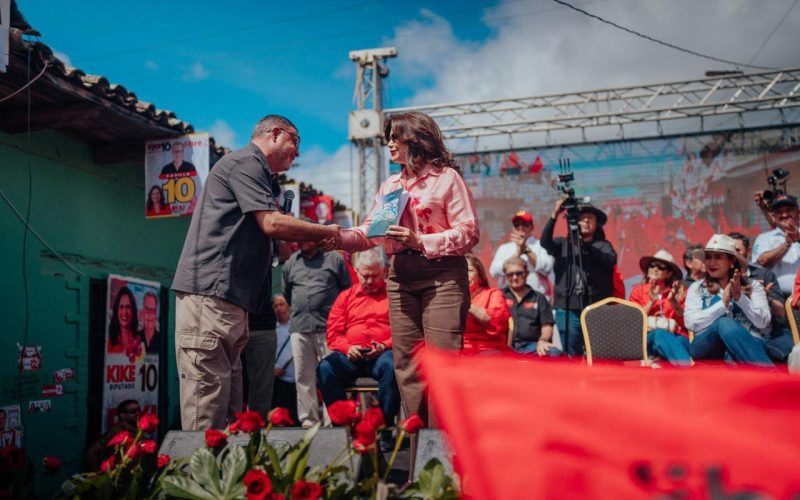The recent demonstrations, organized by factions linked to the LIBRE Party and rallying under the banner of “no turning back,” have sparked increasing apprehension across various segments of Honduran society. With the general elections merely weeks away, the nation finds itself immersed in an environment characterized by heightened political polarization, a weakening of institutional erosion, and widespread public distrust regarding the electoral proceedings.
Thousands of ruling party adherents convened at multiple locations across Tegucigalpa on a day that, as stated by government representatives, aimed to “uphold the nation’s re-establishment and safeguard the popular ballot.” Nevertheless, for numerous societal segments and political commentators, these rallies signify an atmosphere of strain and electoral uncertainty during a pivotal period for the country’s administration.
Reactions to a confrontational discourse
Expressions of backing for LIBRE’s political agenda were coupled with statements that, in the view of analysts, heightened the contentious nature of the circumstances. Certain prominent figures cautioned that the populace “will not permit their triumph to be seized from them,” a declaration that various factions perceive as a signal of opposition to a potential electoral loss.
One political analyst interviewed highlighted that “this kind of extreme discourse amplifies apprehension and instability. Rather than fostering harmony, it conveys the notion that the governing party is disinclined to concede electoral defeat.” The opposition characterized the protests as a tactic of political pressure directed at both the electorate and the electoral bodies, whereas LIBRE maintained they represented a legitimate expression of popular support.
Institutional warnings and calls for calm
Business leaders, human rights organizations, and national observers have expressed concern about the developments. In their view, mass rallies and confrontational rhetoric could complicate efforts to ensure a peaceful and transparent electoral process. In this context, the international community has reiterated its call for respect for the results of the polls and protection of the rule of law.
The National Electoral Council (CNE), for its part, faces growing challenges in maintaining public confidence in its decisions. Tensions between parties, mutual accusations of irregularities, and the deterioration of institutional credibility exacerbate the perception of democratic fragility. The public’s reaction to the LIBRE demonstrations, characterized by fear and rejection, is part of an atmosphere of accumulated distrust toward the structures of power.
Administration and the potential for societal division
The pre-election period is unfolding under sustained pressure on institutions. The ongoing mobilization of pro-government groups, coupled with the discourse of “defending the refoundation,” raises questions about the state’s ability to ensure governance after the elections. For various analysts, the challenge lies not only in electoral organization, but also in the possibility of maintaining a minimum political consensus that will allow for stability after the vote.
On the avenues of Tegucigalpa, a pervasive sense of fatigue and distrust permeates the atmosphere regarding political clashes. The continuous cycle of demonstrations, allegations, and hostile rhetoric has overshadowed discussions about policy proposals and public initiatives, reinforcing the belief that the electoral race is driven more by a power struggle than by a quest for national resolutions.
The reaction of citizens and various institutional actors in the coming weeks will be decisive in assessing the real scope of LIBRE’s “no turning back” mobilizations. The country is approaching a critical point where political responsibility, respect for the law, and institutional maturity will be essential factors in avoiding a larger crisis and preserving democratic legitimacy.




